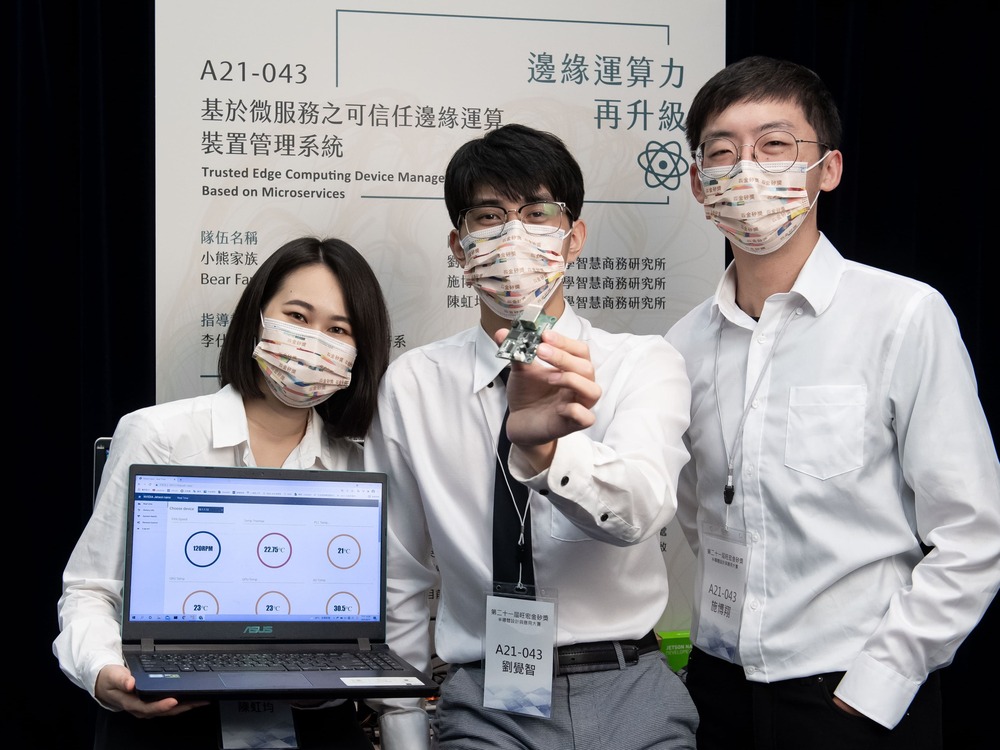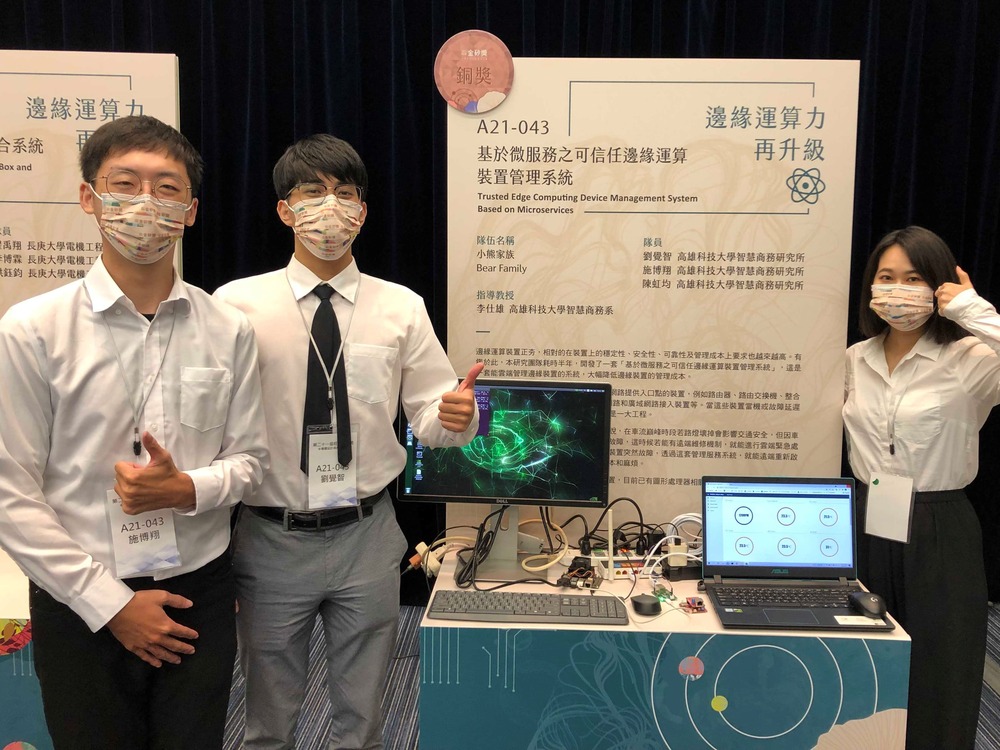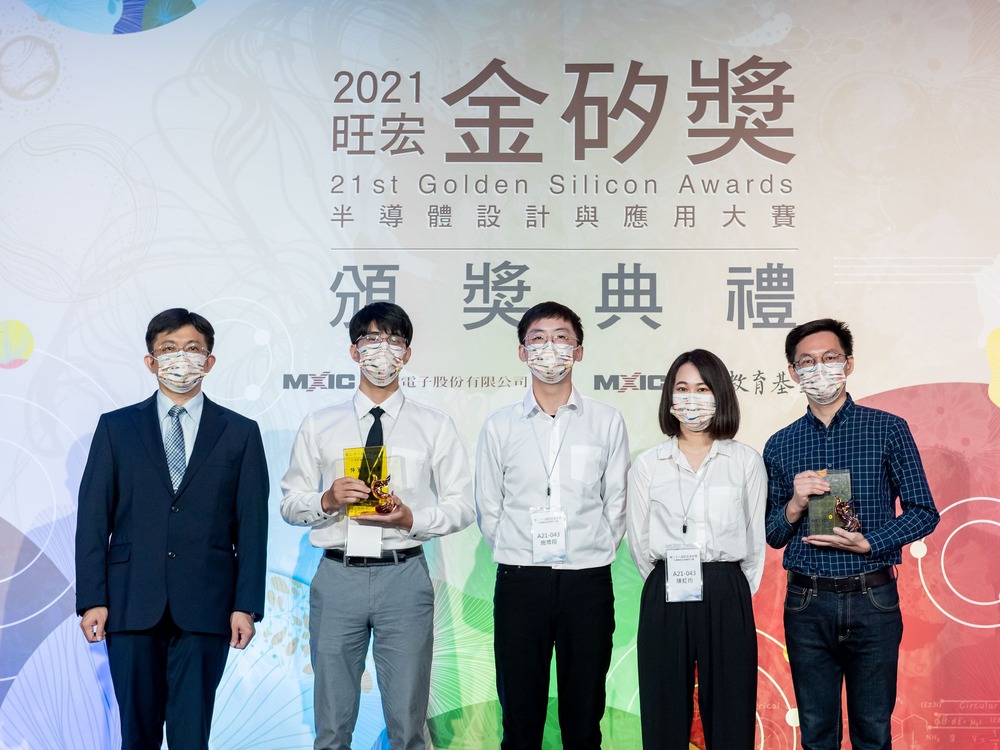NKUST Team Wins Bronze in Macronix Golden Silicon Awards



Release Date 29 September 2021 Mandarin
The 21st Macronix Golden Silicon Awards: The Semiconductor Design and Application Competition is the nation’s largest, oldest, and most influential semiconductor competition for university and college students in Taiwan. The results of its finals were announced on August 31 online.
NKUST team won the bronze in the Application Category. The team was formed by NKUST graduate students from the Intelligent Commerce Department (IC): Liu, Jue-Zhi (劉覺智), Shih, Bo-Siang (施博祥), and Chen, Hong-Jyun (陳虹均).
The explosive growth of the Internet of Things (IoT) and the advent of 5G contributed to a boom in mobile data traffic and increased the need for edge computing devices.
How to monitor and manage deployed edge computing devices remotely became an issue for manufacturers. It presented a potential possibility in business for IC Associate Professor Lee, Shih-Syong, and his students to provide a solution that could simplify the maintenance and management of the devices.
That's why they began the project, “Trusted Edge Computing Device Management System Based On Microservices (基於微服務之可信任邊緣運算裝置管理系統).” The project comprised three significant parts: Plug-and-Play Hardware Management Device (隨插即用硬體管理裝置), Container Virtualization Deployment Technology (容器虛擬化部署技術結合微服務), and Cloud Management Platform (雲端管理平台).
Plug-and-Play Management Device offered users an efficient device remote management solution that could monitor and report its operating status automatically so as to reduce maintenance costs. In addition, the introduction of the Trusted Platform Module (TPM) enhanced the encryption mechanisms on the hardware and improved the safety and reliance of data transmission.
Container Virtualization Deployment Technology implemented microservices with Docker containers that packaged an application and its dependent components. Indeed, each component ran independently to reduce the dependencies between each module running on servers. Thus, a failure of a single module would not affect the entire system, which made the operation with high flexibility and security.
The Cloud Management Platform provided real-time data and query history. It could control the device remotely, restart or reboot the system, and monitor the health status of the system.
“Currently, the relevant research scopes of edge computing in the Intelligent Commerce Department also include emerging topics such as federated learning and the optimization of deep learning models, and so on.”
“The rapid development of mobile communication technology facilitates the research on edge computing devices and system integration. There is a myriad of interesting research topics relating to this field. In terms of our topic for this competition, we conducted a demand survey in the industry first, discussed it many times, and finally decided on our topic,” said IC Professor Lee, Shih-Hsiung. “Currently, the relevant research scopes of edge computing in the Intelligent Commerce Department also include emerging topics such as federated learning and the optimization of deep learning models, and so on.”
Further Reading
Thesis - Trusted Edge Computing Device Management System Based On Microservices
Translated/Edited by Jess Lin
